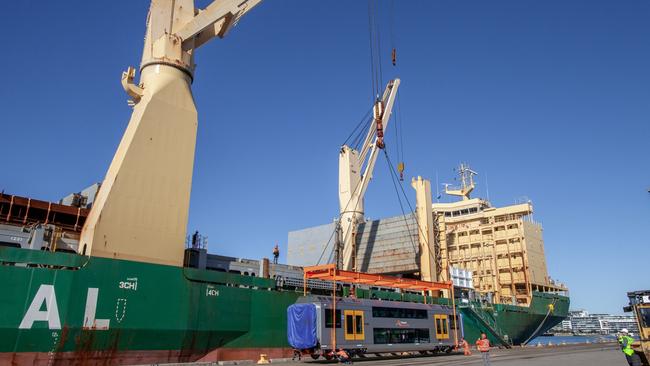ACCC fails in bid to open up NSW ports competition
The competition watchdog says a Federal Court ruling will pose an ‘enormous hurdle’ for the Port of Newcastle.

The Federal Court has thrown out a case brought by the competition watchdog against 50-year restrictions on the Port of Newcastle which make it uneconomic for the port to build a container terminal and effectively preserve a monopoly for its NSW Ports rivals.
Australian Competition and Consumer Commission chair Rod Sims said the judgment provided an “enormous hurdle” for the thermal coal port to diversify and compete with Port Botany and Port Kembla.
“Less competition usually results in higher charges for businesses and consumers,” Mr Sims said.
The judgment, at this stage, is only available to the parties’ lawyers on a restricted basis, pending resolution of confidentiality issues.
The case involved agreements, known as the port commitment deeds, which were entered into as part of the privatisation of Port Botany and Port Kembla by the NSW Government in May 2013, for a term of 50 years.
The deeds oblige the State of NSW to compensate the operators of Port Botany and Port Kembla if container traffic at the Port of Newcastle is above a minimal specified cap.
A further 50-year deed, signed in May 2014 when the Port of Newcastle was privatised, requires the port to reimburse the state of NSW for any compensation paid to operators of Port Botany and Port Kembla under the Botany and Kembla deeds.
The reimbursement effectively doubles the cost of moving a container at the Port of Newcastle.
The ACCC argued that the deeds have an anti-competitive purpose and effect.
The regulator also argued that the 2014 Port of Newcastle Deed was the anti-competitive result of the port commitment deeds, which made the development of a container terminal at the Port of Newcastle uneconomic.
The court dismissed the claims.
“We alleged that making these agreements containing provisions which would effectively compensate Port Kembla and Port Botany if the Port of Newcastle developed a container terminal, was anti-competitive and illegal,” Mr Sims said.
“Absent new entry, NSW Ports will have an effective monopoly in moving containers in NSW for 50 years.
“We took this action to remove a barrier to competition in an important market, the supply of port services, which has a significant impact on the cost of goods paid by Australian consumers.
“Such barriers damage Australia’s productivity performance.
“We will carefully consider the judgment.”


